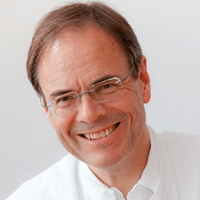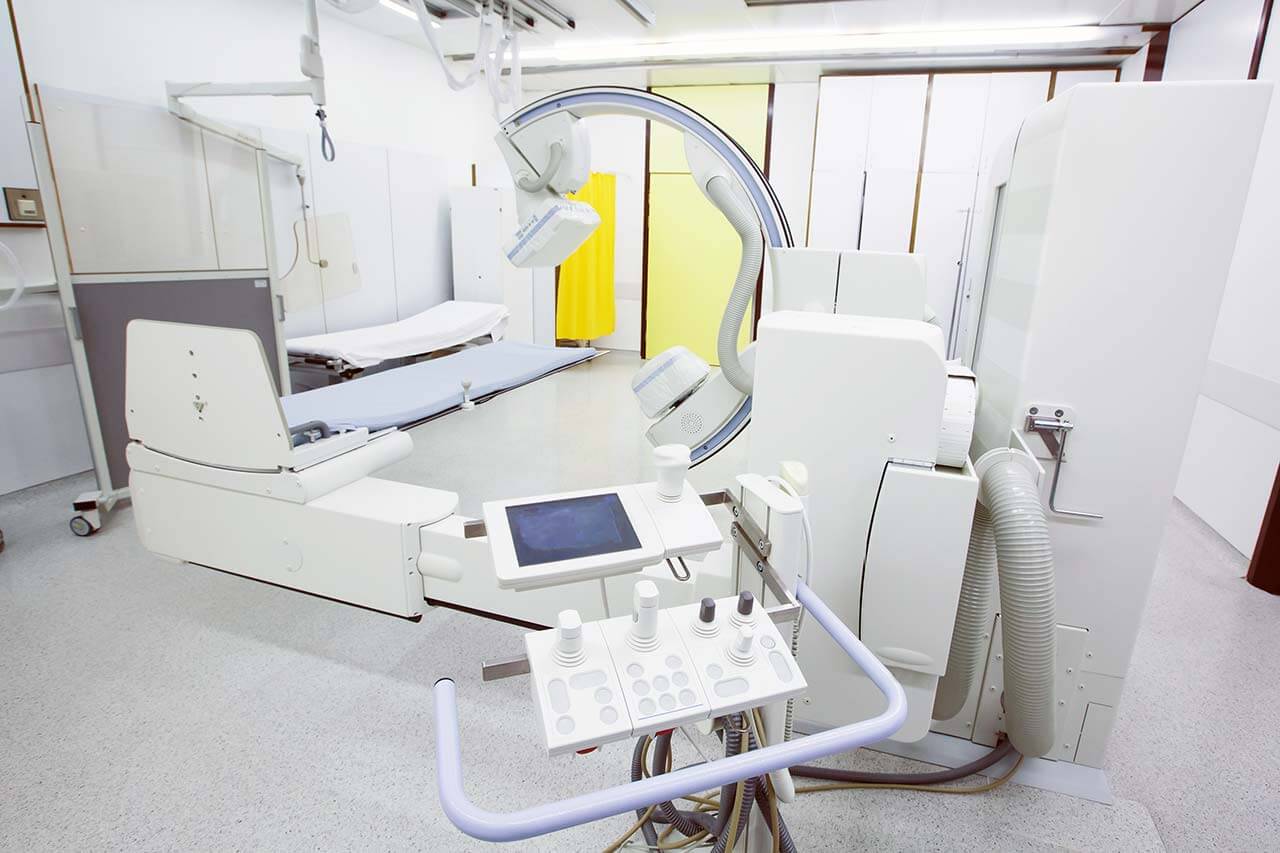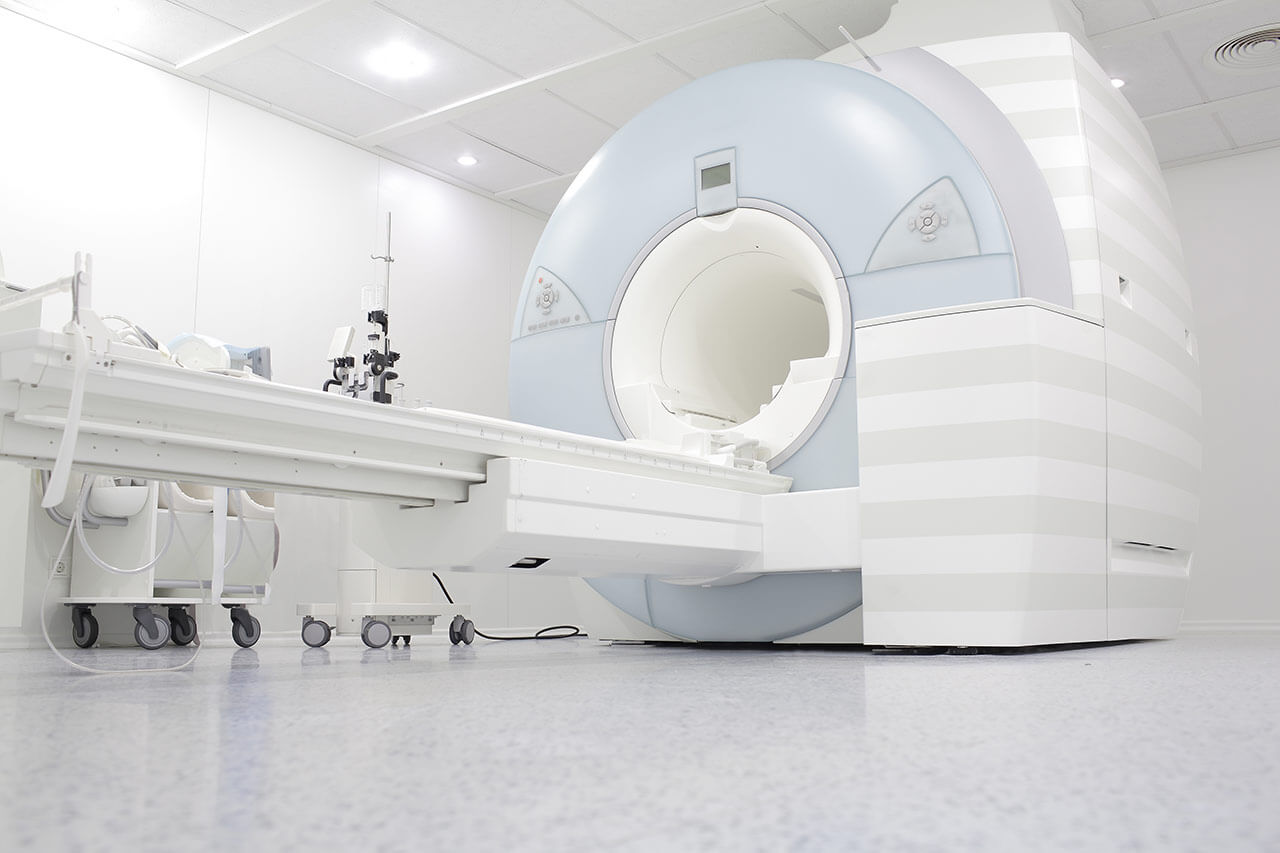
The program includes:
- Initial presentation in the clinic
- clinical history taking
- physical examination
- general otolaryngological examination
- review of medical records
- laboratory tests:
- complete blood count
- biochemical analysis of blood
- indicators of inflammation
- indicators blood coagulation
- sinuses x-ray
- preparation according to preoperative standard
- surgical turbinate resection (conchotomy)
- symptomatic treatment
- control examinations
- cost of essential medicines and materials
- nursing services
- full hospital accommodation
- explanation of future recommendations
Required documents
- Medical records
Service
You may also book:
 BookingHealth Price from:
BookingHealth Price from:
About the department
The Department of Adult and Pediatric Otolaryngology at the Hannover Medical School offers the full range of modern diagnostic and therapeutic services in this medical field. Thanks to the world's largest cochlear implantation program, the medical facility is very popular not only in Germany, but also far beyond its borders. In addition, the department is distinguished by exceptional experience in the treatment of benign and malignant head and neck tumors. These tumors are treated within a specialized center, which operates in the medical facility. It is certified in accordance with the standards of the German Cancer Society. The department has 100 beds. About 25,000 outpatients and more than 6,000 inpatients undergo treatment here annually. The department has an excellent reputation in Germany and throughout Europe, therefore it admits thousands of patients who benefit from the high-quality medical care. The department is headed by Prof. Prof. h.c. Dr. med. Thomas Lenarz.
The main clinical focuses of the department include early detection of hearing loss in children, diagnostics and treatment of sensorineural hearing loss, including tinnitus, the full range of middle ear surgery and placement of partially implanted hearing aids, skull base surgery, including treatment of acoustic neuroma, cancer surgery using modern laser and endoscopic interventions, treatment of chronic inflammatory processes of the nose and paranasal sinuses (including allergic reactions), plastic reconstructive interventions, etc.
Of particular interest are the diagnostics and treatment of benign and malignant head and neck tumors (for example, diseases of the larynx, pharynx and oral cavity, including tumors of the large salivary glands). Therapy is prescribed taking into account all the features of a particular clinical case. The main therapeutic options include surgical treatment, the goal of which is a total removal of the neoplasm and the preservation of organ function, as well as combined chemoradiation therapy. In addition, the specialists have modern surgical techniques, for example, laser surgery, navigation surgery, and intraoperative sonography. If desired, the patient can participate in international clinical trials.
It should be noted that the department widely uses innovative laser devices, such as CO2 laser, which is ideal for the surgical treatment of soft tissue tumors, neodymium laser (Nd: YAG), which is most often used for the treatment of patients with chronic nasal obstruction, snoring, chronic non-allergic rhinitis, KTP laser, Er: YAG laser.
The department is one of the best in the world medical arena in cochlear implantation. As of today, this therapeutic technique is the only effective way to treat severe hearing loss and even total hearing loss in adults and children. The essence of cochlear implantation is in the implantation of a special device consisting of a receiver, a signal decoder and a chain of electrodes, which are implanted into the cochlea. The cochlear implant cannot give a person the opportunity to restore hearing, so a speech processor is placed on the outside. The speech processor's microphone converts ambient acoustic signals into electrical signals, which pass to the sound processor and are converted into a series of electrical impulses. These pulses are sent to the transmitter coil and directed to the implant. Prior to the surgery, the attending physician selects the most suitable type of cochlear implant and tells the patient about the stages of the upcoming treatment, since after the operation for cochlear implant implantation, rehabilitation is required to adjust the device and develop auditory perception and speech in the case of surgery in young children. The operation is performed under general anesthesia, so the patient does not experience any pain. The hospitalization period for adult patients is 5-6 days. Children require a longer hospital stay – up to 4-6 weeks. The department has been engaged in the adaptation of hearing and speech in children after cochlear implantation since 1984, and therefore it has its own effective algorithms to ensure optimal treatment results.
The department's otolaryngologists also successfully perform operations for the implantation of partially and fully implantable devices in patients with various types of hearing loss. The placement of implantable hearing aids has been performed in the department since 1997, so the specialists have vast clinical experience in this area. Obviously, the competence of the department's doctors also includes the selection of classical hearing aids, depending on the type and severity of hearing loss.
The department’s service range includes:
- Diagnostics and treatment of salivary gland diseases
- Diagnostics and treatment of allergies
- Diagnostics and treatment of facial inflammatory skin diseases
- Nasal eczema
- Nasal folliculitis
- Furuncle
- Erysipelas
- Inflammation of the paranasal sinuses with skin lesions
- Other inflammatory processes
- Diagnostics and treatment of midface fractures (lateral, central and lateral-central fractures)
- Diagnostics and treatment of nose and paranasal sinus diseases
- Treatment of snoring and sleep disorders (especially obstructive sleep apnea)
- Conservative treatment
- Instrumental treatment methods
- Surgical techniques
- Diagnostics and treatment of deafness, hearing loss and combined hearing loss in adults and children
- Diagnostics and treatment of hearing loss in children
- Diagnostics and treatment of tinnitus
- Diagnostics and treatment of conductive hearing loss
- Diagnostics and treatment of sensorineural hearing loss
- Diagnostics and treatment of acoustic neuroma
- Cochlear implantation
- Placement of hearing aids, including middle ear implants
- Placement of a penetrating auditory brainstem implants (especially in patients with type 2 neurofibromatosis)
- Laser surgery
- Conservative and surgical treatment of benign and malignant head and neck tumors
- Other diagnostic and therapeutic options
Curriculum vitae
Higher Education
- 1975 - 1977 Study of Medicine at the University of Tuebingen.
- 1977 - 1977 Study of Medicine at the University of Erlangen, Institute of Electrophysiology and Physiology (Prof., Dr. W. Keidel).
- 1977 - 1981 Study of Medicine at the Heidelberg University.
- 1979 Medical Training, London University College, Internship at the Guy's Hospital.
- October 1981 Medical exam.
- 1975 - 1977 Study of Biochemistry, University of Tuebingen.
Professional and Academic Achievements
- 1981 State medical examination, doctoral thesis defense.
- 1986 Board certification in Otolaryngology.
- 1987 Habilitation in Otolaryngology. Subject: "Experimental studies of the influence of drugs on the auditory system of animals".
- 1990 Habilitation at the University of Tuebingen.
- 1993 Professor of Otolaryngology at the Hannover Medical School.
Additional Qualifications
- 01.15.1996 Head of the Degum Seminar on (ultrasound) diagnostics of the head and neck.
- 28.08.1996 Additional Qualification in Allergology.
- 14.09.1998 Additional Qualification in Environmental Medicine.
- 05.19.1999 Additional Qualification in Special Otolaryngologic Surgery, Medical Association of Lower Saxony.
- 25.07.2000 Additional Qualification in Quality Management.
Professional and Academic Career
- 1981 - 1986 Internship in Otolaryngology, Department of Otolaryngology at the University Hospital Heidelberg (Head: Prof. Dr. H. G. Boenninghaus).
- 1986 - 1989 Senior Physician of the Department of Otolaryngology at the University Hospital Heidelberg under the direction of Prof. Dr. H. G. Boenninghaus (until September 1987) and Prof. Dr. H. Weidauer (Head of the Department of Audiology and Neurotology as part of the Cochlear Implantation Program).
- 1987 Habilitation with the experimental paper on neuropharmacology of the auditory system.
- 1988 - 1989 Postdoctoral Research Fellow at the University of California in San Francisco, Department of Otolaryngology, Coleman Laboratories (R. Schindler, M. Merzenich and P. Leake), papers in the field of electrophysiology and morphology, subject: "Cochlear implantation in children. Development of an experimental tinnitus model on animals".
- 1989 - 1993 Head of Research Project on Otology, Audiology and Neurotology "Completely Implanted Hearing Aid" (later Implex TICA).
- 1992 Invitation to the position of C4 Professor in Otolaryngology, Hannover Medical School (successor: Prof. Dr. E. Lenhardt).
- Since 01.02.1993 Head of the Department of Adult and Pediatric Otolaryngology at the Hannover Medical School. Expansion of the Cochlear Implantation Program in the international leading center. Currently, about 500 implants are performed in children and adults per year. Development of fundamental and clinical research in the field of cochlear implants, implantable hearing aids and conventional hearing aids.
- 2003 Establishment of the German Hearing Center in Hanover for comprehensive care for patients with hearing impairment, including clinical studies.
- 2006 Creation of a telemedicine network Live International Otolaryngology Network (LION).
- February 2009 Honorary Professor in Otolaryngology, Iran University of Medical Sciences and Health.
- 2009 Establishment of the Research Center "Integrated Institute of Audioneurotechnologies and Nanobiomaterials Hanover" (VIANNA).
Functions and Positions
- 1995 - 2001 Chairman of the Association of German-speaking Audiologists and Neurotologists.
- Since 2003 Press Secretary of the Center for Special Scientific Research 599 "Stable biodegradable (resolving) and permanent implants of metal and ceramic materials", Hannover Medical School.
- Since 2003 Representative of the Head Center at the Hannover Medical School.
- 2003 Coordination of "Biomedical Engineering" program.
- Since January 2007 EAANO Regional Secretary/EAONO Steering Committee Member.
- Since 2007 Board Member of the Center for Joint Research Transregio 37 micro- and nanosystems in medicine.
- Since 2007 Member of the Council of the Centers of Excellence for Hearing and its Disorders in Lower Saxony.
- Since 2007 AWMF Representative of the German Society for Skull Base Surgery and Audiology.
- Since 2008 Board Member of the Hearing Research Center Hannover – Oldenburg.
- Since 2010 Board Member of the German Society for Biomedical Engineering.
- Since 2012 Spokesman of the Center of Excellence "Hearing4all" Oldenburg – Hannover.
Presidency
- 2001 - 2003 President of the European Federation of Audiology Societies (EFAS).
- 2006 - 2007 President of the German Society for Computerized and Robotic Surgery (CURAC).
- 2007 - 2009 President of the German Society of Audiology (DGA).
- 2007 - 2009 Vice President of the German Skull Base Surgery Society.
- Since April 2009 President of the German Skull Base Surgery Society (DGSB).
- Since March 2010 Deputy Chairman of the German Society for Biomedical Engineering (DGBMT).
- Since March 2013 Chairman of the German Society for Biomedical Engineering (DGBMT).
Main Research Focuses (including financing of external organizations)
- Identification of causes, diagnosis and treatment of hearing disorders.
- Design, development and testing of auditory implants (cochlear implants, central auditory implants, implantable hearing aids, middle ear prostheses).
- Protection and regeneration of the peripheral part of the auditory system.
- Clinical audiology.
- Local drug therapy for the treatment of internal ear diseases.
- Computerized and robotic surgery.
Awards
- 1987 Moos Award of the Academy of Sciences at Heidelberg University for the best doctoral thesis at the medical faculty.
- 2008 Honorary Professor of Tehran University.
- 2009 Alfred Mann Foundation Award for Scientific Achievement, Los Angeles.
- 2012 Honorable Award of the City of Garbsen.
- 2016 Honorary Prize of Prof. Dr. Ludwig Haymann Foundation, German Society of Otolaryngology, Head and Neck Surgery.
Photo of the doctor: (c) Medizinische Hochschule Hannover (MHH)
About hospital
The Hannover Medical School has the status of a leading German medical facility. The advanced medical technologies, highly qualified specialists, as well as productive research activities form a solid basis for top-class medical service of the world standard. The hospital is proud of its outstanding achievements in the treatment of cancer, diseases of the lung, heart, kidney, liver and metabolic disorders, as well as surgical diseases.
The medical facility diagnoses and treats more than 63,000 inpatients and about 470,000 outpatients annally. These indicators are growing steadily, which indicates the reputability and prestige of the hospital in the European medical arena.
For decades, the hospital has been a pioneer in transplantation medicine and is one of the leading centers of this specialization in the world. It performs about 400 transplantations of solid organs annually. Also, the hospital has performed over 130 bone marrow transplantations. In addition, the hospital ranks among the world leaders in cochlear implantation for the treatment of hearing loss.
Much attention is paid to interdisciplinary cooperation. Since 2016, the hospital has the largest certified Cancer Center in the Federal State of Lower Saxony, which provides comprehensive, multidisciplinary medical care in accordance with the standardized protocols of cancer societies.
The specialists of the hospital offer patients not only modern treatment of the highest quality, but also attentive care, sympathetic attitude to the patient's problems and understanding of his individual needs. Thus, the patient can be sure that his health is in the safe hands of highly qualified doctors.
Photo: (c) depositphotos
Accommodation in hospital
Patients rooms
The patients of the Hannover Medical School live in comfortable and cozy rooms. Each patent room has an ensuite bathroom with shower and toilet. A standard patient room includes an automatically adjustable bed with an orthopedic mattress, a bedside table, a wardrobe, a TV and a telephone. You can use TV, telephone and Internet using a special chip card, which can be purchased at self-service terminals or ordered at the service counter. The hospital allows the patients to use mobile phones, with the exception of intensive care units, some departments and diagnostic rooms.
If desired, the patient can stay in an enhanced-comfort room. Such rooms are distinguished by a more sophisticated design, and are additionally equipped with upholstered furniture, a safe for storing valuables and a mini fridge.
Meals and Menus
The patient and the accompanying person are offered delicious and balanced three meals a day. Breakfast and dinner are served buffet style and lunch can be chosen from three set menus. All dishes are prepared by professional chefs using the freshest ingredients available in the region.
If you are on a specific diet for some reason, you will be offered an individual menu. Please inform the medical staff about your dietary preferences prior to the treatment.
Further details
Standard rooms include:
Religion
There is a chapel on the territory of the hospital, where Christian and Catholic services are regularly held. The hospital provides a prayer room for followers of Islam, which is open for visits 24 hours a day.
Religious services can also be provided upon request.
Accompanying person
During an inpatient program, an accompanying person can stay with you in the patient room or in a hotel of your choice.
Hotel
During an outpatient program, you can stay in a hotel of your choice. The managers will help you choose the most suitable options.




